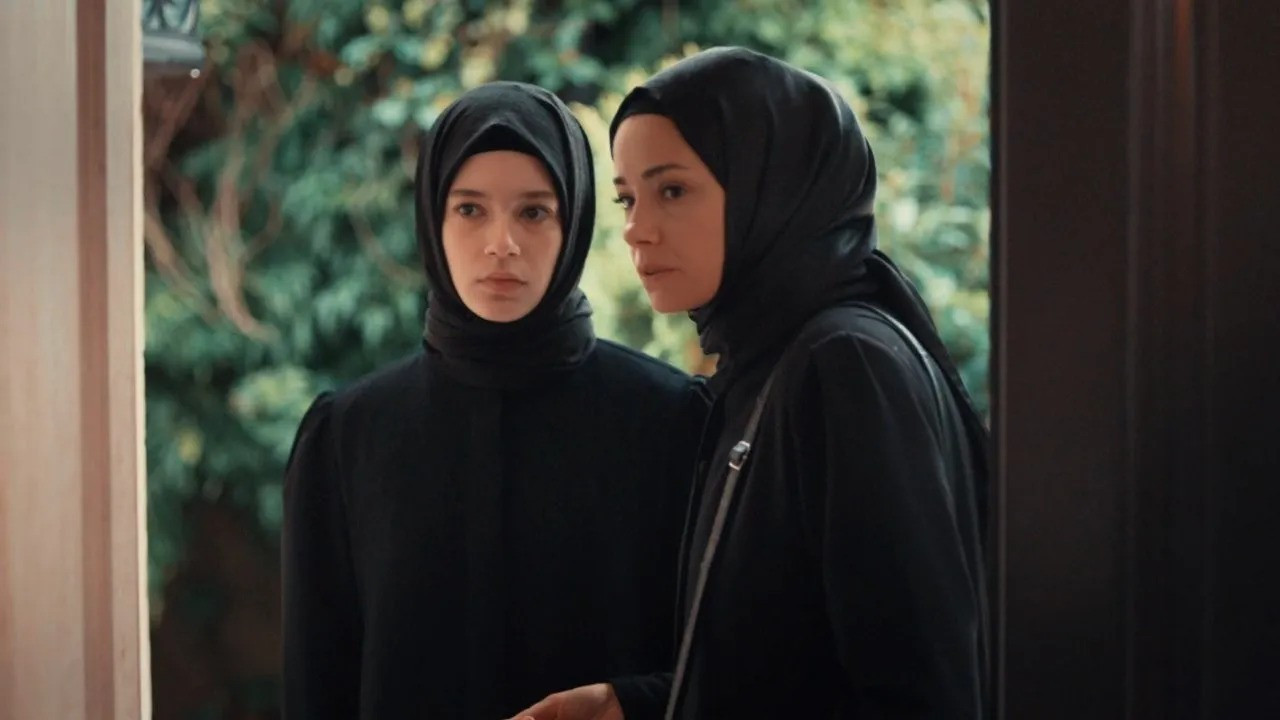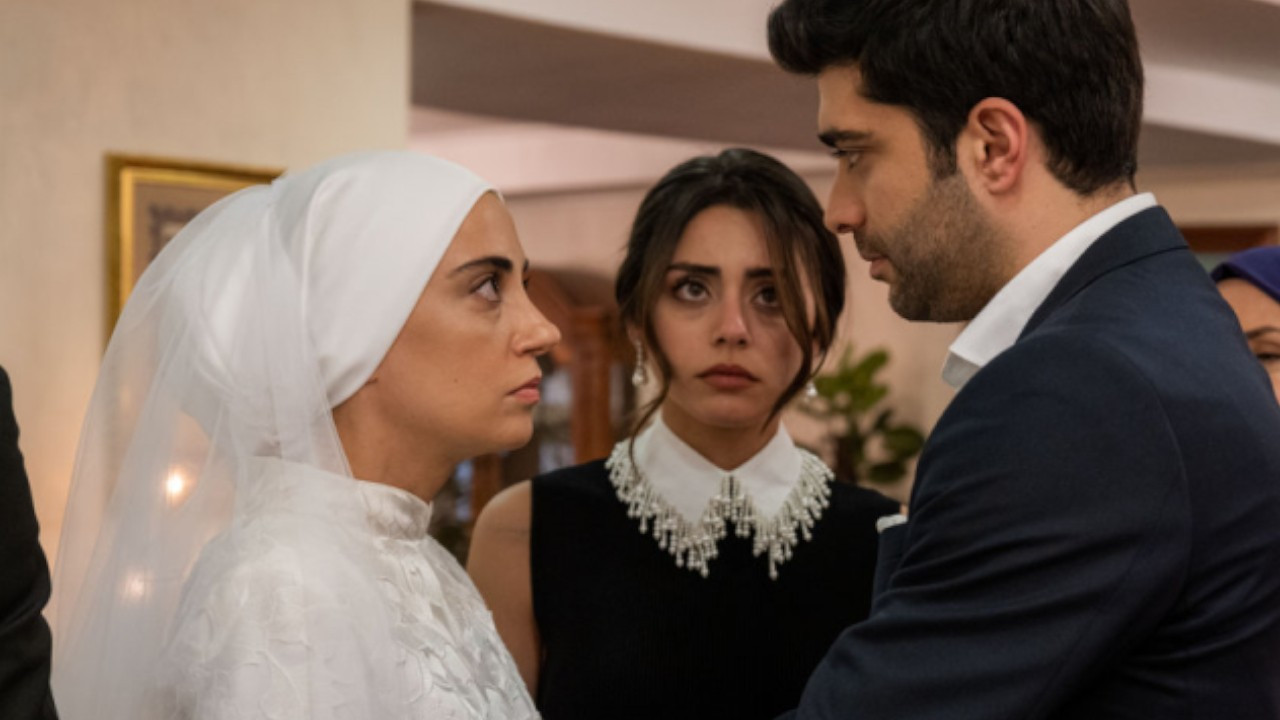Turkish actors stage protest against fines imposed on popular TV series
Turkish actors gathered in Istanbul to protest the broadcast suspension and fine given to the popular series TV “Kızıl Goncalar” (Crimson Buds), which focuses on Islamic cults. Media watchdog RTÜK had imposed a two-episode ban and a fine on the series.
Duvar English
Members of labor unions and professional organizations in cinema protested against Turkey’s Radio and Television High Council’s (RTÜK) fines imposed on the popular TV series “Kızıl Goncalar” (Crimson Buds) in Istanbul’s Kadıköy district.
The series features a mother and daughter trying to flee a fictional Islamic cult. The show has garnered popularity since its recent premiere and received backlash for “misrepresenting religious organizations” from Islamist groups.
RTÜK imposed two broadcast suspensions and a fine of nine million Turkish liras ($299,000) for "violations of the national and moral values of the society". With the call of the Actors' Union, many labor and professional organizations in the field of cinema attended the protests under the main slogan, "No to censorship!”
Famous actress Ece Dizdar, board member of the Actors' Union, stated, "The existence of all creative fields is threatened and a climate of fear is tried to be created through censorship, which we encounter with methods such as punishment, investigation, threatening, intimidation, humiliation, physical and verbal attacks, criminalization, and marginalization."
During the protest, a banner reading "Free cinema against censorship" was unfurled and placards reading "No to censorship" were carried.
Dizdar read a joint statement criticizing the government’s ever-growing censorship practices and said, “Of course, this is not the first time we have encountered these censorship practices. The normalization of them, which we frequently see in every field of art such as theatre, cinema and TV series, will have more dangerous consequences than censorship itself.”
Dizdar stated that obstructions to freedom of artistic expression were not only confronted with methods such as broadcasting suspensions and monetary fines. “For example, plays are cancelled at the last minute on the grounds of renovations (in the halls); concerts, shows and exhibitions are banned and teams are prevented from entering cities son the grounds of 'public safety;' the ministry withdraws its support and screenings of documentaries and feature films are stopped, and festivals are cancelled.”
The artists also stated that film crews were targeted due to censorship and that thousands of employees were not paid their wages and lost their jobs.
RTÜK investigated the "Kızıl Goncalar" upon receiving over 31,000 complaints. The Council found that the show violated “broadcasting principles” for airing certain dialogues that used adjectives for pious characters unbecoming of Islam and Muslims, and some scenes insulting to segments of society with religious sensitivities.
The Council ruled that the broadcaster Fox TV violated Article 8 of the Law on Radio and Television Establishments which states, “Broadcast services,... cannot violate the society’s national and spiritual values, general morality, or the protection of family principle.”
The show faced other obstacles in production upon criticism from religious organizations. Turkey’s Family and Social Services and Culture Ministries revoked filming permits for several of the historical locations of the series, forcing the production team to relocate.


 Turkey's media watchdog RTÜK dishes out penalties to popular TV show, opposition programsMedia
Turkey's media watchdog RTÜK dishes out penalties to popular TV show, opposition programsMedia Famous Turkish series will start airing this week after court’s decisionMedia
Famous Turkish series will start airing this week after court’s decisionMedia RTÜK blocks broadcast of famous Turkish series and mandates airing of Islamophobia documentary insteadMedia
RTÜK blocks broadcast of famous Turkish series and mandates airing of Islamophobia documentary insteadMedia